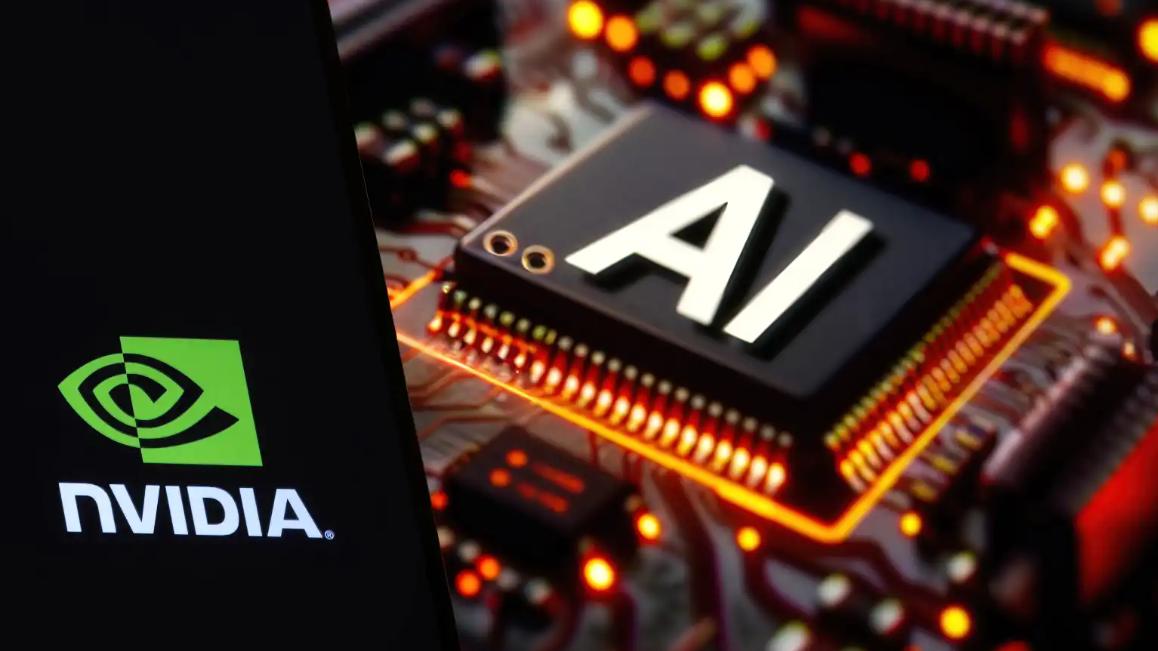
Recently, NVIDIA's stock price performance has once again become the focus of global financial markets. As a leading company in the fields of artificial intelligence (AI) and semiconductors, Nvidia's stock price reflects both the prospects of technological revolution and the sensitivity and complexity of the capital market.
AI driving force: an innovation driven growth engine
NVIDIA holds a pivotal position in the field of AI, with its GPU (Graphics Processing Unit) widely used in deep learning, data training, and generative artificial intelligence. Especially with the explosive growth of generative AI such as ChatGPT, the demand for high-performance computing power has surged, and Nvidia has become one of the biggest beneficiaries with its leading technology and market share.
This technological trend not only drives Nvidia's revenue growth, but also enables it to occupy a strategic high ground in the future industry landscape. For example, its H100 GPU chip has almost become a standard configuration for data centers and AI model training, and the tight supply chain has further boosted market expectations. It is in this context that Nvidia's stock price has experienced multiple significant increases in the past year, even reaching a historical high at one point.
The mania of capital market: foam or reflecting fundamentals?
However, the rapid rise of stock prices has also caused some investors to worry about "foam". Nvidia's price to earnings ratio (P/E) has far exceeded the average level of traditional technology companies, and whether this high valuation can be supported by long-term performance has become a focus of market debate.
It is worth noting that market frenzy often carries emotional elements. The wave of investors chasing AI concept stocks may not be entirely based on rational analysis, but more on bold bets on future potential. The surge in stock prices driven by this sentiment, although it has created substantial returns for investors in the short term, has also planted hidden dangers for price adjustments. Once AI growth falls short of expectations, Nvidia may face drastic fluctuations in its stock price.
The impact of macroeconomic environment: uncertainty of external variables
In addition to internal driving factors, Nvidia's stock price is also heavily influenced by the macroeconomic environment. As the Federal Reserve continues to raise interest rates and global economic growth slows down, the performance of technology stocks in the capital market is generally under pressure. Although Nvidia is relatively resilient due to its industry advantages, changes in the external environment may still have indirect impacts on it.
For example, geopolitical tensions may pose a threat to Nvidia's supply chain. Especially the escalating confrontation between the United States and China in the semiconductor field may limit Nvidia's global market expansion. This has already been reflected in Nvidia's products, which have provided special models of GPUs for China in two generations of products. In addition, weak demand in the consumer electronics market may also weaken the growth potential of its gaming graphics card business. These external uncertainties will exert some pressure on stock prices.
The game between short-term fluctuations and long-term value
In the short term, Nvidia's stock price may continue to exhibit high volatility. This volatility comes from both rapid changes in market sentiment and is closely related to the performance of quarterly financial reports. For example, in its recent financial report, Nvidia's unexpected revenue growth briefly boosted its stock price, but the subsequent technical correction also showed investors taking profits at high levels.
However, from a long-term perspective, Nvidia's core competitiveness is undoubtedly convincing. With the gradual implementation of cutting-edge technologies such as AI, autonomous driving, and metaverse, the demand for high-performance computing chips will only continue to rise. More importantly, Nvidia is not only a hardware supplier, but also a builder of the software ecosystem, with its CUDA platform and AI development toolchain holding an irreplaceable position in the industry. This combination of software and hardware gives it the ability to withstand market cycle fluctuations.
Investor Perspective: Opportunities and Risks Coexist
For investors, whether the current Nvidia stock price is still attractive is a complex issue. On the one hand, the long-term development trend of the AI industry and Nvidia's leadership position mean that its stock price may still have room for upward movement. On the other hand, any negative news in the context of high valuations may trigger an overreaction in the market, leading to a sharp decline in stock prices.
Investors need to be cautious not to rely solely on market heat for investment, but to conduct in-depth analysis of Nvidia's business structure, competitive advantages, and potential challenges. In the current highly volatile market environment, it is particularly important to diversify risks and control positions.
Conclusion: Future Uncertainty and Potential Opportunities
The performance of Nvidia's stock price is not only a microcosm of the AI revolution wave, but also a mirror of the emotional state of the capital market. Whether it is betting on future technological trends or being cautious about short-term market fluctuations, both reflect investors' psychological games to a certain extent.
In the long run, Nvidia's growth potential is undoubtedly enormous, but this does not mean that its stock price will be smooth sailing. Just as every technological revolution goes through a process of excitement, questioning, and adjustment, Nvidia will also seek its own balance between opportunities and challenges. And this is precisely the eternal charm of the capital market.

On January 4th local time, Trump warned India that if it does not limit its purchase of Russian oil, the United States will continue to raise tariffs on Indian products. Trump's latest warning sent shockwaves through the Indian financial market in just one day.
On January 4th local time, Trump warned India that if it do…
In October 2025, the US trade deficit narrowed unexpectedly…
According to the British media CoinJournal, recently, due t…
In January 2026, US President Trump once again set his sigh…
Europe is facing a crucial strategic choice: In the face of…
On New Year's Day 2026, BMW China announced a "systematic v…